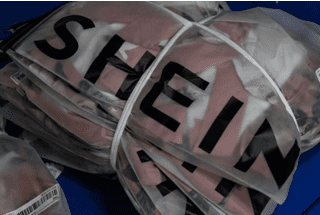Young people who can buy reasonably priced clothing online have embraced so-called “ultra-fast fashion,” but activists claim the movement hides more serious environmental issues.Boohoo, SHEIN, and Emmiol are the major players in a market that manufactures goods and collections with breakneck speed and rock-bottom costs in China, Hong Kong, and Britain, respectively.
They fiercely compete with more well-known “fast fashion” businesses with physical locations, including Sweden’s H&M and Spain’s Zara, thanks to their internet-based business model. Bloomberg reports that SHEIN generated $16 billion in worldwide sales in 2017.
Environmental pressure organisations, however, condemn the issue of “throwaway apparel” as egregiously wasteful because it requires 2,700 litres of water to produce just one T-shirt that is promptly discarded. Many of these inexpensive garments wind up being burned on large landfills.

